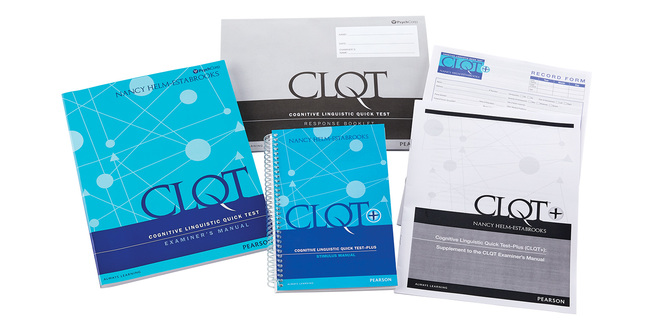The criterion-referenced Cognitive Linguistic Quick Test (CLQT™+) quickly assesses strengths and weaknesses in five cognitive domains, and adds an optional administration path for people with aphasia. Guidance on using this test in your telepractice.
Cognitive Linguistic Quick Test-Plus
CLQT+
The criterion-referenced Cognitive Linguistic Quick Test (CLQT™+) quickly assesses strengths and weaknesses in five cognitive domains, and adds an optional administration path for people with aphasia. Guidance on using this test in your telepractice.Choose from our formats
Kits
Starter & complete kits, print & digital
1 option
Test forms & reports
Booklets, record forms, answer sheets, report usages & subscriptions
6 options
Support materials
Manuals, stimulus books, replacement items & other materials
6 options
All products
All tests & materials offered for CLQT+
13 options

